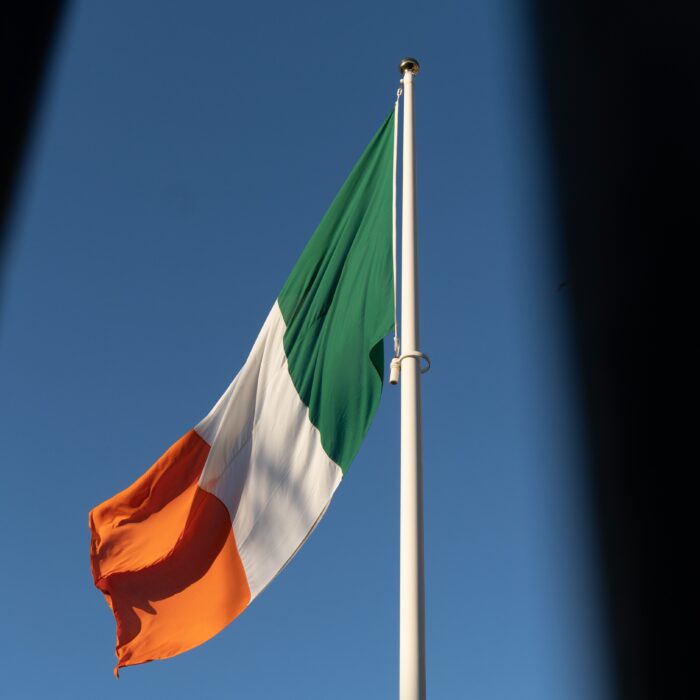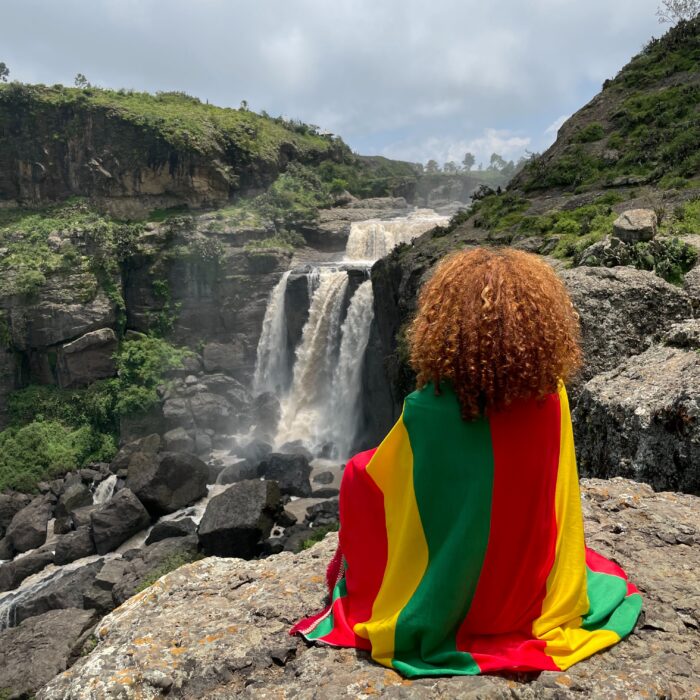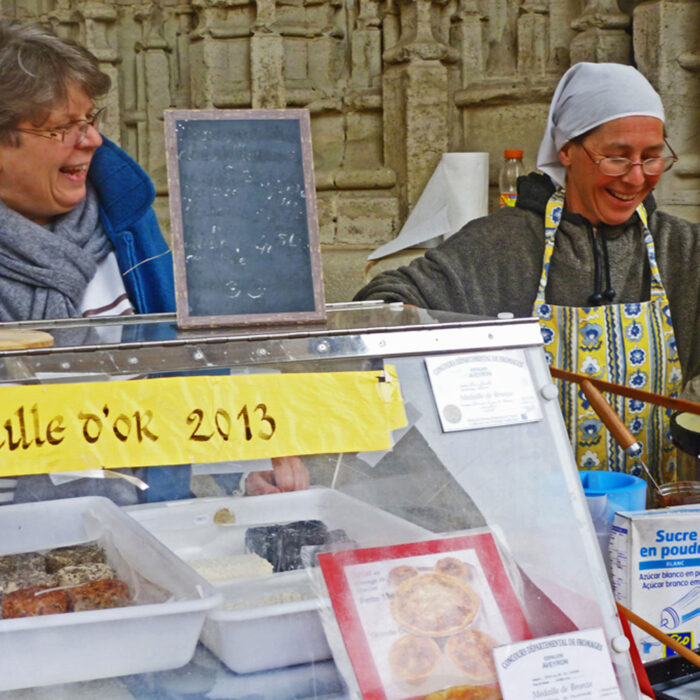You have no items in your cart. Want to get some nice things?
Go shopping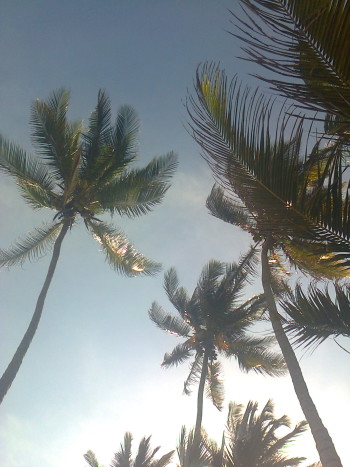
It wasn’t an easy one to find and it took me a while finding it. It all began when I had a maracuya-flavoured ice cream in Buenos Aires that looked, smelled and tasted like mango that I assumed it was just a different name for it (the same goes for avocado that they call by its Quechua name, “palta”). But I was recently informed that they are in fact different fruit. To confirm this, I bought one of each on my last day in Cartagena. Surely once both opened and laid on the table their secrets exposed, there would be no doubt about it. Unfortunately, I didn’t have time to materialise my plans then and there. It was already time to check out from my hostel and head to the bus station leaving me no time to nibble. That’s fine, I thought to myself, I will have them for tea.
I was warned that the traffic at peak hours is quite something. It was something completely different. Brutal is not the word for it – closer to impossibly insane, I would say. It is beyond comprehension how such a nice little town can transform into a pure chaos of cars, trucks, taxis, motorbikes, pedestrians, street vendors, roadwork, non-existing lanes, ghost bus stops, broken traffic lights, malls glittering with Christmas decoration, horns wailing, exhausts coughing dirt, laughter, popular music singing contests and code whistling. Bus conductors do it in order to indicate to their drivers to stop or carry on; drivers to urge donkey carts and pedestrians to pull aside; pedestrians to stop a taxi in the middle of everything, demand that it turn around in total traffic jam and pick them up; neighbours do it too, to invite a friend over or shoo street kids away.
I soon lost all hope of ever getting on a bus and making it to the terminal on time for the last coach to Santa Marta that was my next destination. Even if by trial and error I were to find the correct, existing and working bus stop or an equally eligible traffic flow hotspot, buses came full or would simply not stop. After some contemplation, I decided to try my luck getting a taxi, despite being about twenty times more expensive. None would stop either. And they are practically thousands of them, even if the sun went out in broad daylight them little things busy as bees could light the whole place up. I strategically changed my location various times, but to no avail. As a last resort, I headed for the taxi stand. I wasn’t the only one to do so. After quite an effort, I managed to find not one but two empty taxis – an unprecedented strike of luck in its own right. But when I said the words, the drivers refused outright. I was in despair – and I would soon understand why. Eventually, one agreed to take me to the station at a non-negotiable outstretched price. I felt rather relieved, under the wrong impression that the ordeal was over. In reality, it had only begun.
My fruit and I jumped in the back seat. A plastic baby shoe was dangling from the rear-view mirror. A family man for sure. Left and right, white dwarf Santa Clauses. It is still unfathomable to me how one can celebrate, let alone decorate in faux snow, Christmas in the Caribbean. With a lot of colour, live music and cold drinks, I imagine.
Not five minutes in, the taxi-driver was already beyond consolation. Endless lines of red stoplights ahead of us, road diversions, congestion jams and background market commotion. He really tried. Accelerating and braking, changing lanes, taking shortcuts, overtaking, cutting through, across and in any possible direction, jumping gears like a frantic race horse forced to dressage before the Queen. Every time I thought that the road ahead was clear, a new traffic jam appeared. Again we would make it through, again it would catch up with us. It was ridiculous how long this was taking. Traffic chaos aside, how can a terminal of a town be so far away, practically in another town all together?
“Are you sure this is the right way?”
I half-jokingly asked, without wanting to upset the taxi driver any further. We were surrounded by dark fields in what seemed to be the middle of nowhere. I haven’t been kidnapped so far so I thought that if it ever came to that, this would be just about right.
A few moments later we both shouted relived. As the driver pulled over at the bus station, I acknowledged his close to impossible feat of bringing me there safe and sound, and ran to the platforms, jumping on the first service that I found. No time for negotiations. It was the last bus to Santa Marta, brand new and with zero kilometres I was told. I liked its orange logo. Which reminded me, what about my fruit? I could try eating the mango as discreetly as one can without a knife, but somehow having thick orange juice slobbering through my fingers, mouth and nose didn’t seem appropriate. As for the maracuya, one definitely needed a knife. In fact, the lady at the grocery had indicated how to cut it at about one third of its length from the narrow end to release the gas. Gas? I paid no attention at the time. Meanwhile, the little happy pair was fermenting in my bag.
I didn’t contemplate on the matter any further and tried to make myself comfortable in the brand new bus seat. A young man in a black shirt stood up in the corridor and begged for our attention.
“My brothers”, he says in a loud voice already trembling with emotion. “Praise the lord for safeguarding our journey. I travel to spread the word of our lord for his word is a hammer that breaks the heart of man like stone. Surely my brothers if I take a hammer and hit a stone it will not break at once. If I smite it again it might crack; bring the hammer down a third time, a fourth time and the rock will be crashed. This is the power of the word of god, my brothers, that breaks the heart of man. Hear the word of our lord and praise his name.”
“Amen” I hear the people around me say. The man continues:
“For who among us, my brothers, surely, hasn’t had his heart made stone by the difficulties of life? Hardship, financial problems, problems with your family, your loved ones, your work.” He looks at the crowd. “I for once was in a family that didn’t love me, that treated me like a dog, my brothers, and left me in the streets. But I managed to overcome my despair and got back on my feet because I live in the heart of our lord. Raise your hands my brothers those of you who have struggled in your life.”
All hands go up. I hadn’t realised how many of the other passengers were listening.
“Let us praise the lord my brothers and thank him, and ask him to vindicate our journey and to hear out prayers to put us in the book of life.”
“Amen”, the bus echoes.
“Mathew 21-22! Mathew 21-22” the woman sitting next to me shouts elated. “For god is planted like a seed in our hearts and he won’t lead us astray.”
“As you say it, my sister. Mathew 21-22. For our lord Jesus Christ has spilt his blood for you, surely. For your life is bought with the blood of our lord, my brothers, who came to this earth to save us and the lord doesn’t discriminate between the rich and the poor, the white and the black, the tall and the short. Let us pray my brothers.”
“Amen.”
By that time I also realise that the logo of the bus, below its reader-friendly no smoking sign, is “Gracias Jesus”.
“Let us pray to the lord to vindicate our journey, let us pray, my brothers, to the lord to vindicate our journey, to vindicate our lives. Who is vindicated by our lord? Who is vindicated my brothers by our lord and saviour? Let us pray my brothers for the lord to vindicate our journey.”
My attention drifts outside the window. The preacher’s voice blends in with everything around me – the people, the bus, the distant lights. He repeats his words carefully to eager listeners as he enters an ecstasy of conviction and despair. Will he save our souls? Will he save his?
When they finished praying, the young man handed out sweets. He assured us that they had no commercial value whatsoever and that he would still give us one even if we made no donations. “Because believe it my brothers” he clarified, “even I pay bus fares. Even I.”
The journey continued in silence and in the dim blue light of this brand new bus. I must give it to them. For your money you get so much more than a simple transfer to the next city. After some time, the lights were turned on again. This time, a man in a white shirt. He was selling perfumes and body lotions. He spoke with as much conviction as the first one, and well-rehearsed excitement.
“This is a one-off opportunity not to be missed. You see, I must get rid of all this tonight. I was selling it for 35 but now I must give it all away. Its street market price is 50, way too much. As you can see, it is a brand new product with the plastic wrap and the barcode intact, with the expiration date at the bottom. All original and very in fashion. Try it my friends, for free and without compromise as I pass on the samples. Street price is 50, but I’m giving it to you for 25. Just for this price you get –”
He was interrupted by his phone ringing.
“Yes mamita? Yes, yes” – short pause – “yes. Ciao.”
He continues nonchalantly. Even street vendors have family I guess.
“It’s street market price is 50 but today I’m giving it away for only 25. Only 25 my brothers, and I will sell it to whoever wants it be it black, white, native, foreigner, only for 25.”
Same story, different product. I tried to get some rest. The air-conditioning was set high, the men’s speech was etching my soul, and the dizziness from mixed lotion scents making me forget that I still hadn’t had any dinner. It seemed quite the long journey given that this slightly more expensive bus was both brand new and guaranteed a faster route without risking the quality of its whole-rounded service. And with zero kilometres. I looked at my watch. It was already past midnight. We should had reached our destination by 22:30, 23:00 con mucho. I got up to ask if we were near. I couldn’t recall any extenuating circumstances to justify this kind of delay.
“Santa Marta? Yes, we have passed it” says the driver calm as a smoking pipe.
“Passed it?”
“Yes. We didn’t enter the bus station.”
“Didn’t enter?”
“No.”
The discussion was turning into a matter-of-fact conversation as if talking about bird species and their eating habits that I feared to ask why.
“So what are my options?”
I was hoping that the man driving our brand new and vindicated orange bus was, he too, made of flesh and bones and would show sympathy to my predicament.
“Well, you can get off at the next stop and catch the bus going back. You will reach Santa Marta at about 5:00 and it will cost you 25.”
This was no coincidence. Not only had I not vindicated my journey by prayer and gotten some sweets in return, but neither did I help the street vendor be alleviated from his merchandise. The universe was laughing at me. I silently returned to my seat. The holes to the driver’s plan were so obvious that didn’t need explaining. Not to mention that the next stop was actually near the border but I still had planned a week’s stay on this side. Or maybe someone was telling me otherwise?
A few brief moments of silence passed, cruising the dark country road. Thick vegetation, wooden huts, empty counters. It must get very lively during the day. Suddenly, the bus stopped. Another one was coming the opposite direction. It crossed us halfway and then reversed. The drivers were having a chat. A little more than an hour later and 6.000 pesos shorter, I was at the outskirts of Santa Marta. By the time I found a hostel and got into bed it was already 1:30 and too late to eat anything. Besides, I was missing a knife.
The next day was an administrative nightmare. I had to change travel plans, make phone calls, find cash, buy supplies and coordinate last-minute itineraries on public computers with the ‘W’ key stuck that I left without breakfast or the opportunity to verify what I was set out to do all along. If there would be a place for it, that would be the national park by the true Caribbean shores where I was heading next. As exotic and as primitive as required.
The two round fruit hung on my 14 kg backpack that I was carrying plus about another 5 kg in provisions and water as I hiked for almost 3 hours through thick jungle. And at an unprecedented quick pace too, since one had to compete with fellow trekkers for a hammock on the beach. Meanwhile, because of the heavy rainfall the previous day, the path was exceptionally muddy. Three quarters in and it finally dawned upon me to go barefooted as a packed hippie. I took solace when I found myself mid-calf in mud by thinking that it was all natural and very therapeutic.
I finally reached my beach. At last, after all that traffic jam panic, all night travel, jungle heat and a whole new kingdom of sea crabs and multi-legged bugs, I was there. A glittering jewel tucked away in Columbia’s north-east corner. Spectacular tall palm trees shading white sand beaches, thick vegetation cast over roaring waves, boulders standing proud and immobile under overhanging plush clouds. The perfect setting. One could loose and find herself there forever.
Two days later, I was still wondering along the wide shores. They change fast because of the strong tides, which also preclude one from jumping into the blue waters right away. With practice and the necessary degree of defiance, I found out that getting in is easy enough if you know what you are doing, transcend the immediate feeling of being sucked by a giant washing machine, run as fast as you can and pass the first wave. At that moment, I remembered that there was an extra adventure factor missing from the picture. Unfortunately, it was all left on the maracuya, because the mango was already gone as unobtrusively as a tasty mango would. The only exception was that it comprised about half of my dinner and I only managed to eat half of it before its funny-shaped stone jumped out of my hands and into the black sand.
Decisively, I went to the restaurant and I asked for a knife. To be on the safe side, I also asked the man to be so kind and cut the fruit for me. I didn’t intend to conclude my exploration of tropical treasures in front of an audience. However, when earlier that day I opened my locker to retrieve it, I found a toxic smell crawling on everything. It took few days to clear. I had been warned that maracuya should be consumed quickly; they even produce hallucinogenic substances someone had said.
“What? Why hasn’t anyone commercialised on that yet?” I exclaimed, but only to receive disapproving stares. The exoticness of my discovery didn’t amaze them. They are probably used to it.
A wooden bench at the back of a restaurant under a thin generator light it was then. To my slight disappointment, no further toxins were produced upon opening the fruit precisely at the one third of its length from the narrow end. The man looked inside.
“Well? Is it edible?”
He says nothing. Instead, he flips the cap to expose its white velvet skin, places it on top of the opening and pushes it my way.
I pick it up. It is remarkably light. I eagerly lift it only to see what seems to be an empty albeit well-cushioned interior.
“Is that it?” I ask.
Another man, older and very casual, urges me to continue. I have a better look inside. At the far bottom of this luscious container that now reveals its double purpose as an organic cup designed exclusively for tourist use, they appear. Black-hearted seeds covered with thick amber membrane. They really do look like tadpole eggs – if only a yellow frog would be brave enough to climb on a long-branched tree and place them there. No one seems to share my revelation that I now realise is naught. Perhaps I was hoping for something more spectacular like the Tropics supposed to be, nothing less and nothing more than exuberant colour, movement and frivol like Carmen Miranda, graceful and endearing. I bring the fruit closer to smell it, waiting for at least something toxic if not hallucinogenic. It smells rather sweet. Without overthinking it like a butterfly seduced by its aroma and lured by a flesh-eating orchid, I tilt the cup and pour its contents in my mouth.
Not the fate of the butterfly, then, but paradigmatically seduced. Its dark crunchy seeds are covered with a sweet and at the same time slightly citric flesh, soft and juicy. Something like pomegranate left to ooze under the sun in a rainbow-filled garden while remaining 100% fresh and tasty. Its volume hardly covers the bottom of the shell. I am left in wonder and craving for more. My imagination is fired up and my senses finally awaken and attuned to wide open spaces, roaring seas, salty winds, shady groves and their light-hearted inhabitants.
This, my friend, is the Caribbean.
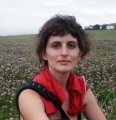
About Eve Kalyva
Eve Kalyva is an art critic and a writer. She has worked as a lecturer and collaborated with art institutions in Europe and Latin America, and is interested in the relation between art and politics, subversion and exploration. Eve particularly enjoys dancing, travelling and all that has to do with horses.

